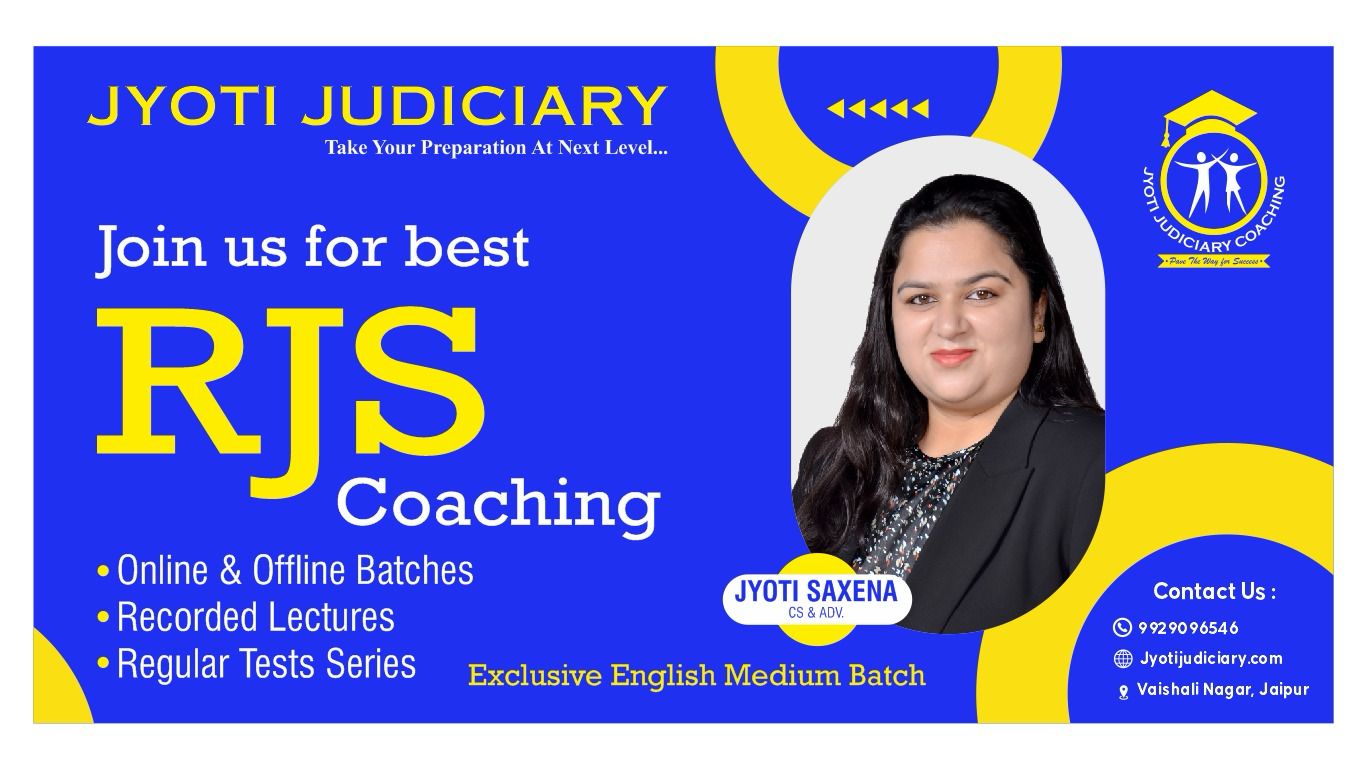
One of the hardest and most competitive exams for candidates aspiring to become judges is the PCS J, or Provincial Civil Service Judicial examination also known as the UP Civil judge examination. The battle for PCS J examinations is more intense than ever due to the rising need for judicial services. This is where the Jyoti Judiciary, with its extensive PCS J examination preparation guide, that provides PCS J offline coaching as well as PCS J online coaching comes in. It is a preeminent resource for civil service examination preparation and has assisted thousands of students in realizing their goal of becoming judicial officers.
The top PCS J Coaching in Mathura as well as PCS J Coaching in Agra, the Jyoti Judiciary, has taken charge keep you informed as soon as the exam announcement is published. You should be aware of the updated curriculum and the number of seats available. The curriculum will essentially remain the same as it was in past years, but you never know. It’s important to be informed of any small adjustments to improve your chances by enrolling in its online PCS J Coaching to get information anytime and anywhere.
Eligibility Requirements for PCS J Examination
Understanding the qualifying requirements is crucial before you begin studying for the PCS J examination. States have different requirements for who is eligible to take the PCS J examinations. Nonetheless, a few typical eligibility requirements discussed by Jyoti Judiciary, the top Judiciary Coaching in Mathura are:
- The candidate needs to be an Indian national.
- The candidate needs to be a LLB graduate of a recognized law school.
- The age range for the candidate is 22 to 35 (with an exception for reserved categories).
- 5 years of age relaxation for the OBC category
- 5 years of age relaxation for SC/ST category
- 5 years of age relaxation for State government employees
- 5 years of age relaxation for Sports person
- 15 years of age relaxation for Physically Handicapped
- 5 years of age relaxation for Ex-servicemen
- The candidate needs to be in good physical and moral health.
- According to the Advocates’ Act of 1961, a candidate had to be enrolled or eligible to be enrolled as an advocate.
Before beginning your preparations, it is imperative that you verify the qualifying requirements of the state for which you are seeking.
PCS J Examination Pattern
There are three stages in this examination process:
- The Preliminary Examination: Candidates are going to be asked objective-style questions on the examination. The only candidates eligible to take the main exam are those who qualify for this exam. The marks that candidates receive in this stage are not considered at the end of the selection process.
- The Mains Examination: In this stage of the examination, the candidates must respond to a series of subjective questions. Usually, there are three or four papers in it. It is significant to remember that these scores are considered in the final selection process.
- The Interview Round: This is the last stage of the selection procedure. At this point, the candidates’ personality, intelligence, and interest in the job are evaluated.
PCS J Examination: How to Prepare Wisely?
Having a Strong Grasp of the Syllabus and Pattern:
- Candidates should review the syllabus as well as the exam format before starting their preparation.
- When preparing, it is quite simple to get sidetracked if you don’t have a solid grasp of the concepts, topics, marking criteria, question weighting, etc.
- When you are constructing your study plan, make a note of the things that are most important to you as well as your areas of strength and weakness.
- Divide up the study time for each subject appropriately to prevent confusion at the last minute.
Try Giving Ample Amount of time to Practice
- Jyoti Judiciary provides you with a lot of objective-style questions to aid in your study and keep you informed about the different kinds of questions that are posed in this exam.
- You will receive practice subjective examination questions from Jyoti judiciary, to assess your conceptual knowledge and help you be ready for the questions that will be asked of you in the exam.
- Mock exams are a crucial practice, and your level of preparation will be assessed based on how many you complete. Give the test and don’t be scared of the examination days.
Include Leisure for Rest and Rejuvenation in Your Study Schedule
- It is important for candidates to remember that passing this test requires more than just memorization and study.
- For the mind to perform well in an examination setting, both physical and mental wellness are crucial. As a result, it is strongly encouraged that people lead stress-free, healthy lifestyles while getting ready.
- They ought to eat a balanced diet and stay away from fast food and junk food as much as they can.
- In order to keep alert and motivated, they should also take brief breaks from their studies.
Some of the most important preparation techniques for the PCS J exam include selecting the appropriate study materials, working through past year’s question papers and mock exams, and concentrating on the fundamentals. Preparing for the PCS J exam can also benefit from coaching and mentoring.
Take frequent breaks, keep up with recent legal developments, and arrange your topics according to the importance of each one for the examination. You can pass the PCS J examination and realize your goal of developing into a judicial officer by using these techniques and recommendations.









